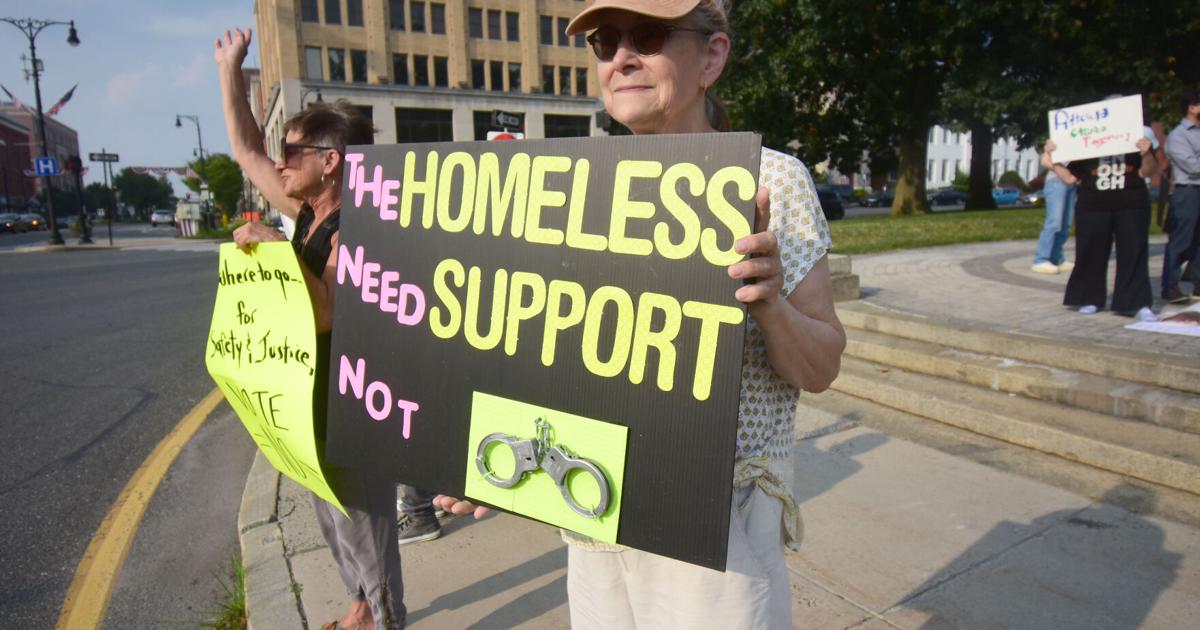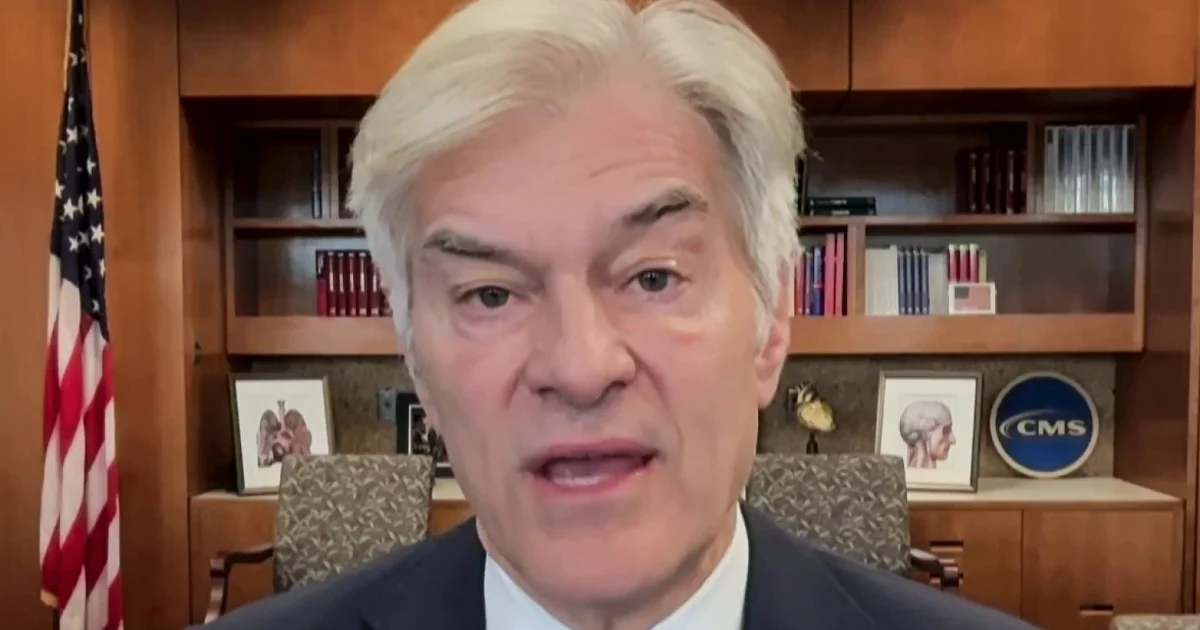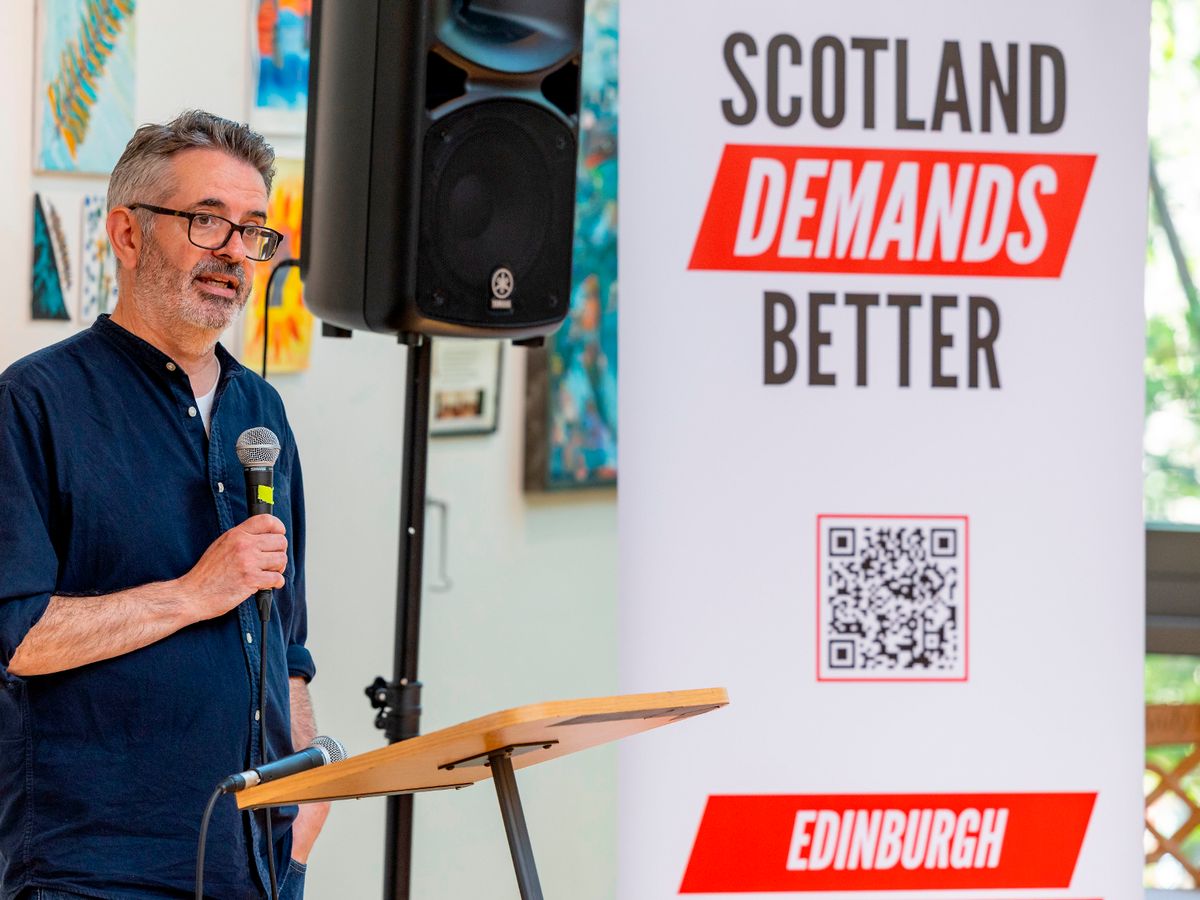Copyright berkshireeagle

PITTSFIELD — With housing costs rising, homelessness at the forefront and questions about how to grow the city’s economy, seven candidates are competing for four at-large seats on the City Council — each bringing different ideas on how to move the city forward. Incumbents Peter White, Earl Persip III, Kathy Amuso and Alisa Costa are seeking reelection, joined on the ballot by challengers Karen Kalinowsky, Sara Hathaway and Lawrence Klein. Candidates are offering a mix of experience and fresh perspectives, emphasizing strategies to make Pittsfield more affordable, safe and vibrant for residents and businesses alike. The Eagle recently sat down with the candidates ahead of the Nov. 4 election. Here’s where they stand on the issues residents care about: HOUSING ACCESS AND AFFORDABILITY All seven candidates identified housing among the city’s biggest challenges. Costa, a housing policy analyst and project manager, called for more housing subsidies and vouchers to stabilize tenants, as well as incentives for developers to build higher-end apartments that free up lower-cost units. She also wants to make the city’s permitting process faster and beef up inspection staffing. “Businesses are struggling to move here because they can't find suitable housing for their workers,” Costa said. Hathaway, a former mayor and current Pittsfield School Committee member, proposed establishing a community development corporation to let residents take the lead on creating affordable housing and job training programs — an idea she said was recommended to Pittsfield more than two decades ago. Amuso, who served 10 years on the School Committee and now sits on the Licensing Board, said she has supported all affordable housing projects that have come before her and hopes to see more emerge. Persip, a longtime councilor, has worked at a number of nonprofits downtown, emphasized accountability for absentee landlords “who aren't keeping their spaces up to par or opened at all to be rented.” “That's limiting what people have access to. So that raises the price,” he said. “I think with ordinances and inspections, it's one way we can kind of move that needle a little bit.” Klein — a board member of the Berkshire Art Association, whose son, Jacob Klein, is running for School Committee — said he would like to see the city work more closely with landlords to make housing affordable, suggesting tax incentives or zoning changes. Kalinowsky, a former police officer who served one term on the council, said she wants the city to take more aggressive steps to incentivize building in the West Side and return vacant and abandoned homes to the tax rolls, which Hathaway echoed, adding that there are “hundreds of thousands of dollars that we could be bringing in to the tax stream” with these properties. White, who has served on the council for a decade, agreed with Costa that Pittsfield needs both affordable and market-rate housing to attract workers in sectors like health care and engineering. HOMELESSNESS Candidates also discussed strategies to address homelessness and encampments, though their views vary on policy approaches. Costa and Hathaway opposed Mayor Peter Marchetti’s proposed ordinance banning camping in public spaces, saying it fails to address root causes of homelessness such as poverty and mental health. Hathaway also pointed out that the behaviors this ordinance is meant to curb — defecating outdoors, using drugs in public and sleeping in doorways — already are illegal; they're just not being enforced. Amuso and White supported the measure but emphasized it must be coupled with compassion and long-term housing solutions. Kalinowsky also supports the ordinance, but put more emphasis on the need for enforceability without punishing people for just being homeless. Amuso also filed a petition asking city leaders to explore creative shelter options — including portable sleeping pods, lockers and shower facilities — to help the homeless population near the police station. “I want to be kind; I want to be caring,” Amuso said. Persip said he supports small, incremental improvements to support business owners and address homelessness, such as installing lockers and sanitation pods, but stopped short of endorsing the ordinance itself. “Small-business owners are the backbone of the community,” Persip said. “They're always willing to give. And when they ask for help … I think we have to listen to that, because without a successful downtown and small businesses, that tax base comes back onto the residents, and that creates more housing uncertainties for people.” White said he wants more shelter beds and flexible spaces for those who are not sober, while Costa emphasized the need for supportive housing options. Klein said addressing root causes — financial issues, substance use and mental health — was key to long-term solutions. All candidates agreed that increasing shelter beds is necessary, but Kalinowsky wants to ensure that shelter residents are local and that advocates move people out of shelters into transitional housing rather than keeping them in permanent shelter situations. SAFETY AND SANITATION Candidates emphasized that improving downtown safety involves both enforcement and social services, along with addressing sanitation issues. Persip said the city should take a more hands-on approach to keeping streets clean, particularly North Street with morning cleanups. White highlighted the risks of public needle disposal, whether for medication or drug use, and wants more safe disposal locations with providers like Berkshire Harm Reduction. He also supports mobile bathrooms and showers and a downtown visitor center for anyone who needs a safe place to use the restroom. Hathaway and Costa agreed that public restrooms are needed but noted maintenance costs are high. On public safety, the candidates stressed a mix of enforcement, community programs and proactive measures. Amuso and White want to balance police funding with community investments while addressing staffing and retention issues, especially among younger officers. Former officer Kalinowsky advocated for more police foot patrols downtown, which she said previously helped reduce crime. She said this can be done with some restructuring of funds and duties within the police department; the issue is just that officers don’t want to walk the streets, she said. White, Klein and Persip said downtown is generally safe, with perception often driving concern, but agreed that foot patrols could enhance community confidence. Costa and Hathaway support sending social workers or peer counselors instead of officers to situations involving addiction or mental health to avoid escalation. White also emphasized traffic-calming measures, revamped neighborhood watches and working with the sheriff’s department to reduce recidivism through rehabilitation programs. ECONOMIC DEVELOPMENT Amuso, Persip, White, Costa, Klein and Hathaway support city financial and tax incentives, like Tax Increment Financing, to attract businesses. Kalinowsky agreed but stressed that incentives should be tied to sustainable business plans. “We’re doing a disservice by giving funds to businesses without thought-out plans,” she said. Hathaway advocates opening Pittsfield’s liquor licenses through a home rule petition to spur restaurant development. “We want [people] to come to Pittsfield, eat dinner, and go to the theater,” she said, adding that people have told her that they would like to open a restaurant in Pittsfield, but can’t because they are unable to secure a liquor license. Candidates also highlighted workforce development and downtown revitalization as key strategies. White and Persip said bringing more people and businesses into downtown would enhance vibrancy, with Persip suggesting incentives to get businesses into vacant office spaces. Costa called for supporting small businesses with technical assistance and long-term stability funding. White added, “Quality of life is really my biggest priority … so businesses want to do business here.” BUDGET PRIORITIES Personnel costs dominate Pittsfield’s budget, totaling about $162 million, or 71.5 percent, driven by salaries, health insurance and retirement contributions. Amuso highlighted the tight budget and suggested some reductions to the $86.4 million school budget. Persip urged caution on new projects, even grant-funded ones, noting ongoing maintenance costs like the city’s pickleball park. He emphasized staff as “our biggest asset,” and he and White suggested combining roles or departments to cut costs, such as merging the school and city HR directors. White also advocated for consolidations, such as merging school and city HR functions, and prioritizing infrastructure and preventative maintenance to reduce long-term costs. Kalinowsky criticized the school system as top-heavy with administrators, proposing that a business expert review all administrative roles and suggesting integrating schools to match declining enrollment. However, Persip, Klein and Costa said that teacher salaries should be raised to address retention issues. Hathaway and Costa said cutting funds is difficult, citing infrastructure needs and staff retention as priorities. Costa proposed reallocating some police responsibilities to co-responders and preventative programs to save on overtime. Klein stressed he would study the budget thoroughly before recommending any changes.



